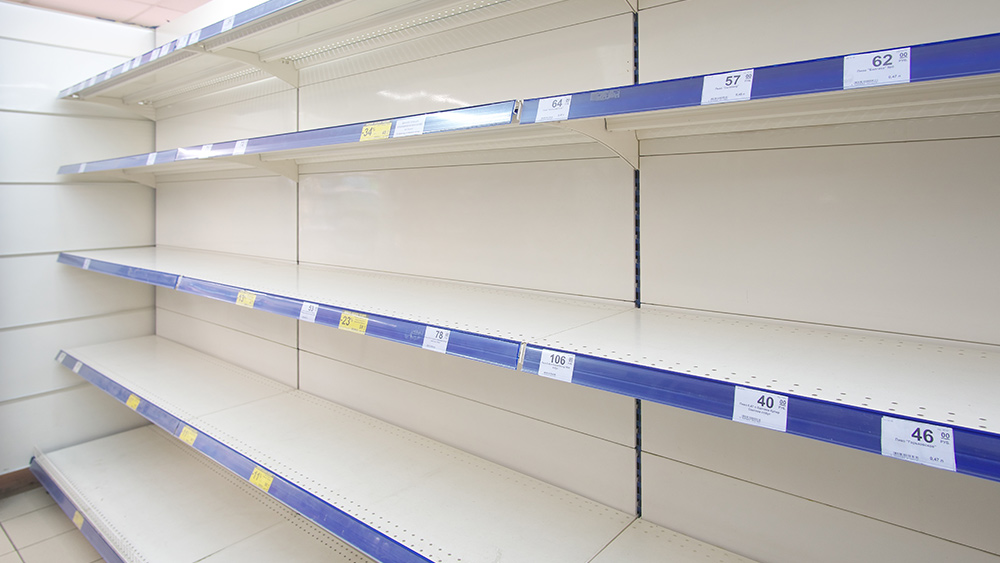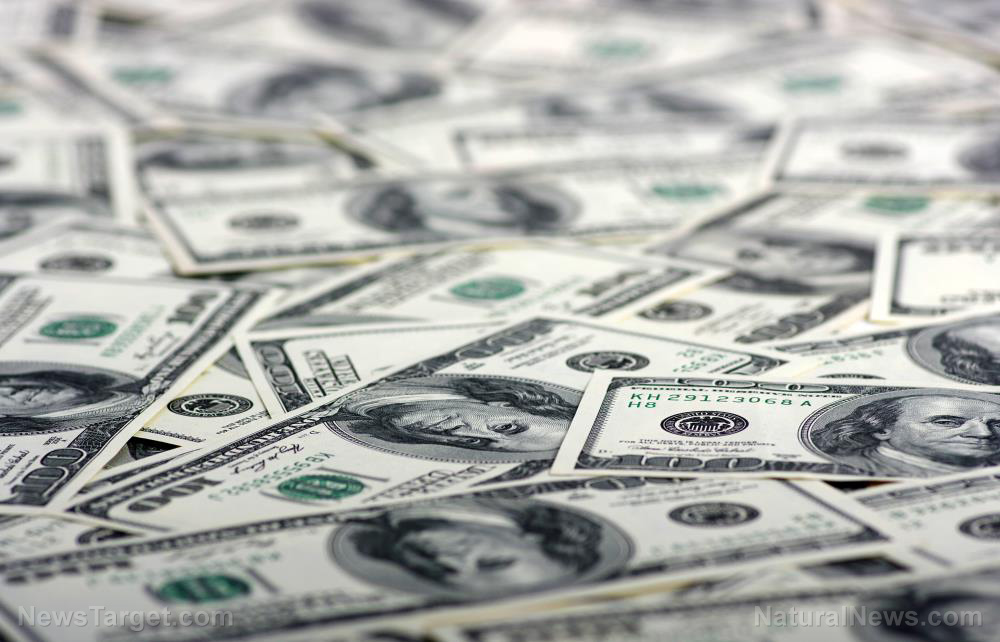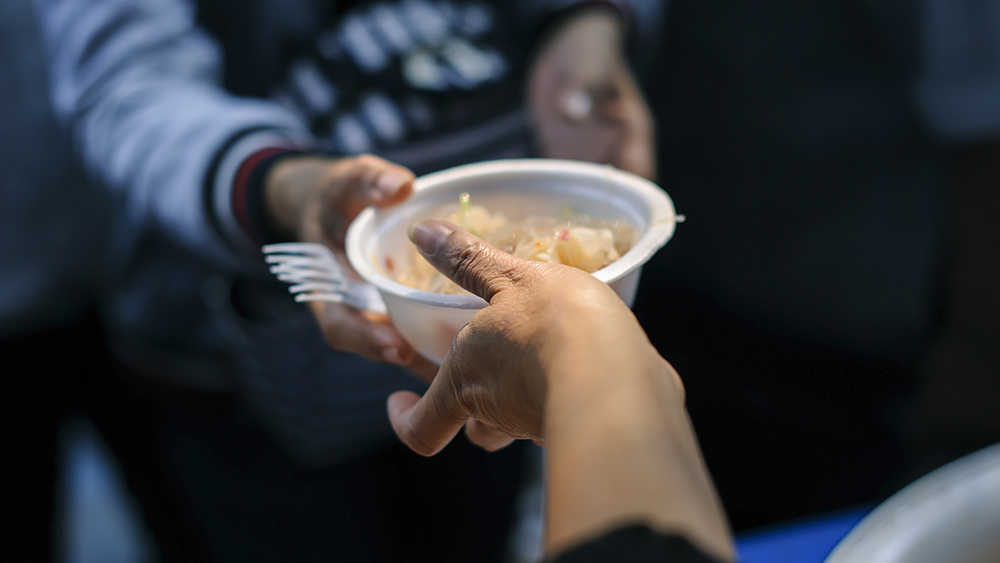Worsening baby formula SHORTAGE hits ten states, low-income families
06/02/2022 / By Ramon Tomey

The ongoing shortage of baby formula in the U.S. has impacted 10 states, particularly low-income families, according to data.
Based on figures from market research firm IRI, the states of Alaska, Georgia, Kansas, Kentucky, Minnesota, Montana, Tennessee, Texas, Utah and West Virginia experienced the highest out-of-stock levels for baby formula.
At the national level, 23 percent of powdered baby formula was out of stock in the week that ended on May 22 – a two-percent climb from the week that ended on May 15. During the first week of January and prior to the February 17 recall of baby formula produced by Abbott Laboratories, only 11 percent of baby formula was out of stock. Prior to the Wuhan coronavirus (COVID-19) pandemic, the normal out-of-stock range of infant formula was between five percent and seven percent.
According to government officials, the families reliant on the U.S. Department of Agriculture‘s Special Supplemental Nutrition Program for Women, Infants and Children (WIC) are the hardest hit by the baby formula shortage. The program allows the families of eligible infants to purchase infant formula using federal benefits, positioning the federal government as the biggest baby formula buyer. According to the White House, WIC beneficiaries purchase about half of the infant formula sold across the country. (Related: WELFARE NATION: More than half of US-born babies are eligible for WELFARE benefits, including food assistance.)
Abbott’s recall of baby formula following the deaths of two infants has impacted the WIC, as its Similac product is the program’s most widely used formula brand. Similac is used in 34 states and the District of Columbia. Rival Enfamil – produced by Reckitt – is only used in 11 states, while only five states use Nestle-produced Gerber baby formula.
President Joe Biden pledged to continue efforts to speed up domestic production alongside the importation of baby formula from outside the U.S. during a June 1 virtual meeting with executives from baby formula companies.
“We will continue to work around the clock with manufacturers, states, doctors and families,” he said.
Representatives from Nestle, Reckitt and private-label manufacturer Perrigo were in attendance at the virtual meeting with Biden. They described the shortage as a “crisis” and said they increased production capability to meet demand. Interestingly, there was no representative from Abbott during the conference.
Abbott, FDA share equal blame for the shortage
A week earlier, officials from the Food and Drug Administration (FDA) and baby formula companies testified before lawmakers during a Congressional hearing. The hearing convened by the House Subcommittee on Oversight and Investigations, which is under the House Committee on Energy and Commerce, sought to uncover more about the ongoing infant formula shortage.
Abbott North America President for Nutrition Christopher Calamari was in attendance, alongside two other executives from Reckitt and Nestle. Three FDA officials were also present during the hearing – including FDA Commissioner Dr. Robert Califf.
Rep. Diana DeGette (D-CO), chairwoman of the House subcommittee, denounced the baby formula shortage as “unacceptable.” While she put the blame on Abbott for the shortage, she also rebuked the FDA. According to DeGette, the regulator needs additional resources to ensure food safety.
Califf acknowledged the congresswoman’s remarks, admitting that the FDA did not act fast enough when it became clear that there was a food safety problem at Abbot’s infant formula production facility. The FDA ordered the closure of its Sturgis, Michigan plant in February after at least two infants died of Cronobacter sakazakii infection from contaminated baby formula – which was produced there.
“It was too slow and there were decisions that were sub-optimal along the way. Our oversight is critical, but a return to normal will only occur when Abbott takes the steps to resume production in a safe manner,” the FDA commissioner said.
Calamari, meanwhile, extended apologies on behalf of his company for the ongoing crisis.
“I want to express our extraordinary disappointment that this situation has occurred and our dedication to ensuring that it is addressed as soon as possible. To all of the families who depend on us for a reliable supply of formula – we let you down. We are deeply sorry and are committed to making sure that a shortage like this never happens again,” the Abbott executive said.
Watch Dr. Tau Braun explaining how the baby formula shortage ties in with the Russia-Ukraine war.
This video is from the American Media Periscope channel on Brighteon.com.
More related stories:
FDA, Abbott Labs both to blame for the ongoing baby formula shortage.
Sources include:
Submit a correction >>
Tagged Under:
Abbott, baby formula, big government, chaos, collapse, congressional hearing, FDA, federal benefits, food collapse, food scarcity, food supply, hunger, infant formula, Nestle, panic, Reckitt, shortage, starvation
This article may contain statements that reflect the opinion of the author
RECENT NEWS & ARTICLES
COPYRIGHT © 2022 Rationing.News
All content posted on this site is protected under Free Speech. Rationing.News is not responsible for content written by contributing authors. The information on this site is provided for educational and entertainment purposes only. It is not intended as a substitute for professional advice of any kind. Rationing.News assumes no responsibility for the use or misuse of this material. All trademarks, registered trademarks and service marks mentioned on this site are the property of their respective owners.




















